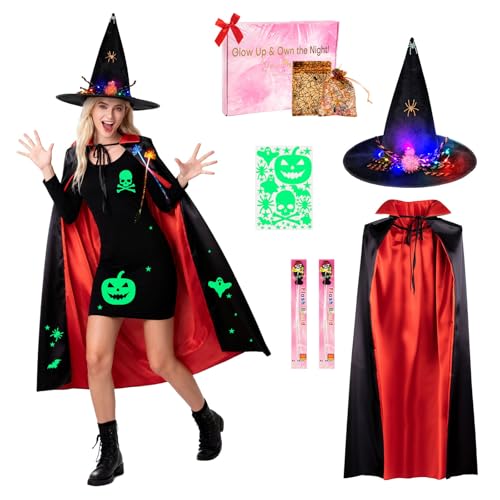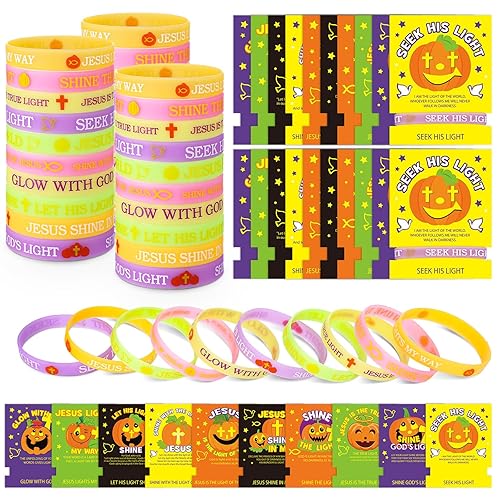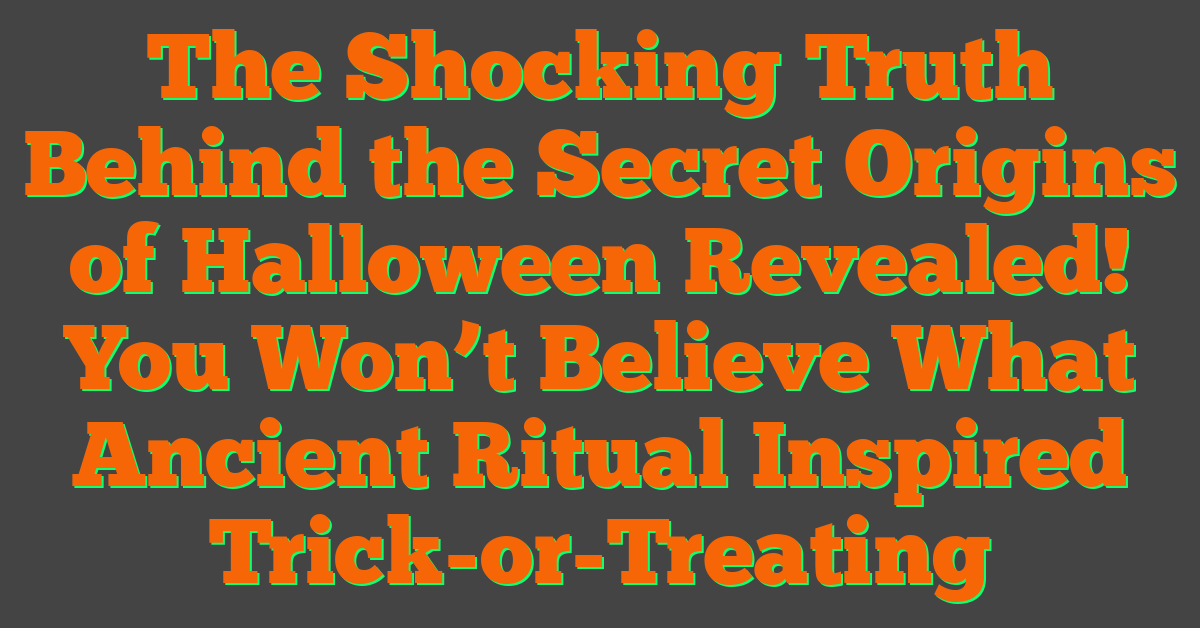Halloween, traditionally celebrated on October 31st, is a holiday that has sparked debate within the Christian community. This article aims to explore the question of whether Christians should participate in Halloween festivities. By examining the history and origins of Halloween, as well as different perspectives within Christianity, readers can gain a better understanding of the topic.
The history of Halloween reveals a combination of ancient Celtic traditions and Christian influences. Although it originated as the Celtic festival of Samhain, the Christian Church later introduced All Hallows’ Eve as a way to commemorate and honor the saints. Over time, Halloween has evolved into a holiday associated with costumes, trick-or-treating, and spooky themes.
Views on Halloween in Christianity vary. Some hold a traditional perspective, considering Halloween to have pagan origins and connections to the occult. In contrast, others have a contemporary perspective that seeks to redeem the celebration and focus on community-building.
Arguments for celebrating Halloween as a Christian include cultural engagement, redeeming the celebration, and building community bonds. On the other hand, arguments against participating in Halloween highlight concerns such as pagan origins, occult connections, and a focus on fear and darkness.
For those who choose not to observe Halloween, alternative ways to celebrate can include focusing on light and joy, hosting community events, and embracing fall festivities. Ultimately, the decision to celebrate Halloween as a Christian is personal and should be guided by individual faith considerations.
Key takeaway:
- Christians can celebrate Halloween as a way of cultural engagement and building community. It can be seen as an opportunity to connect with others and share their faith in a relevant way.
- Halloween can be redeemed by focusing on light and joy, rather than fear and darkness. Christians can use this occasion to spread love, positivity, and the message of hope.
- Some Christians may choose not to celebrate Halloween due to its pagan origins, occult connections, and emphasis on fear. It ultimately becomes a personal decision guided by one’s faith and convictions.
What is Halloween?
Halloween is celebrated on October 31st each year. What is Halloween? It has roots in ancient Celtic and pagan traditions and has evolved into a day of costumes, parties, and spooky activities. People dress up in costumes and go door-to-door saying “trick or treat” to receive candy. Halloween is associated with symbols like jack-o’-lanterns, ghosts, witches, and black cats.
The origins of Halloween trace back to the ancient Celtic festival of Samhain, where the boundary between the living and the dead was believed to blur on the night of October 31st. Bonfires were lit, and costumes were worn to ward off evil spirits. Over time, Halloween incorporated elements of Roman festivals and Christian traditions like All Saints’ Day and All Souls’ Day.
For Christians, whether or not to celebrate Halloween is a personal decision based on individual beliefs and convictions. Some choose to participate to engage with their culture, redeem the celebration, and build community. Others have concerns about the pagan origins, occult connections, and focus on fear and darkness.
Alternative ways for Christians to celebrate Halloween include focusing on light and joy, hosting community events, embracing fall festivities, and considering personal faith and convictions.
History of Halloween

Photo Credits: Rickyshalloween.Com by Frank Roberts
Unravel the fascinating history of Halloween as we explore its origins and evolution. Delve into the mysterious beginnings of this holiday and witness its transformation through time. Brace yourself for a captivating journey into the depths of Halloween’s past, unearthing the customs and traditions that have shaped it into the beloved celebration we know today.
Origins of Halloween
The origins of Halloween can be traced back to the ancient Celtic festival of Samhain. This festival marked the transition from summer to winter, which was strongly associated with death. The Celts firmly believed that on October 31st, the line between the living and the dead became blurred, allowing the spirits of the deceased to return to Earth.
During Samhain, the Celts would light bonfires and don costumes to ward off malevolent spirits. They also held a belief that the presence of these spirits made it easier for their Druid priests to make predictions about the future. As the Roman Empire expanded, the festival of Samhain merged with the Roman festivities of Feralia and Pomona, which were dedicated to honoring the dead and the goddess of fruit and trees, respectively.
As Christianity spread, the Church sought to replace pagan rituals with Christian holidays. In the 9th century, Pope Gregory III declared November 1st as All Saints’ Day, a day to honor all saints and martyrs. The evening before, October 31st, came to be known as All Hallows’ Eve, eventually shortened to Halloween.
While Halloween has evolved over time and incorporated various cultural practices and interpretations, its roots can be traced back to ancient Celtic and Roman traditions. Understanding the historical context of Halloween can greatly influence and shape individual perspectives on its celebration as a Christian holiday.
Evolution of Halloween
The evolution of Halloween can be traced back to its ancient Celtic roots. Originally known as Samhain, it was a pagan festival held on the eve of the Celtic new year. The Celts believed that spirits freely roamed the Earth on this night, so they dressed in costumes and lit bonfires to keep them away.
With the spread of Christianity, the festival changed to align with Christian beliefs. In the 8th century, Pope Gregory III designated November 1st as All Saints’ Day to honor all saints and martyrs. The night before became All Hallows’ Eve, which eventually evolved into Halloween.
Over time, Halloween adopted customs from different cultures. In the United States, it became a community-centered holiday with activities like trick-or-treating, costume parties, and haunted houses. There is also a growing trend of celebrating Halloween with fall festivals and events that focus on light, joy, and community engagement.
Fact: According to the National Retail Federation, Americans spent an estimated $8.05 billion on Halloween-related purchases in 2020, including costumes, decorations, and candy.
Views on Halloween in Christianity

Photo Credits: Rickyshalloween.Com by Jeremy Rivera
Halloween, a holiday celebrated globally, often sparks debates and differing viewpoints within the Christian community. Delving into the contrasting perspectives, we will explore the traditional Christian viewpoint, deeply rooted in historical and religious beliefs. We will delve into the contemporary Christian perspective, highlighting how modern interpretations and cultural contexts shape the understanding of Halloween in the Christian faith. Let’s unravel the diverse viewpoints surrounding Halloween and its significance to Christians.
Traditional Christian Perspective
The traditional Christian perspective on Halloween is cautious and reserved. According to this perspective, Christians believe that the holiday’s pagan origins and associations with the occult make it incompatible with their faith. They see Halloween as a time when negative themes are celebrated, focusing on fear and darkness instead of light and joy.
In line with this viewpoint, Christians are encouraged to avoid participating in traditional Halloween activities such as wearing scary costumes, decorating their homes with spooky symbols, or going trick-or-treating. Instead, they are advised to focus on celebrating the light and joy of their faith and to find alternative ways to engage with their communities during this time.
Some Christians choose to host fall festivals or harvest parties that promote family-friendly activities and create a sense of community. Others may participate in activities that create a positive and uplifting atmosphere, such as volunteering or spreading kindness and love to others.
Ultimately, whether or not to celebrate Halloween as a Christian is a personal decision that should be made with careful consideration of one’s faith and values. Christians should prayerfully discern how best to honor God and reflect His light in all aspects of their lives, including how they approach holidays like Halloween.
(Note: Halloween has ancient roots in the Celtic festival of Samhain, where people believed that on October 31st, the boundary between the living and the dead was blurred. This historical context is not necessary for understanding the traditional Christian perspective on Halloween.)
Contemporary Christian Perspective
The contemporary Christian perspective on Halloween varies. Some view it as a cultural event rather than a religious one. They believe participating can be harmless and provide opportunities for evangelism and building relationships with neighbors.
Others argue that Halloween can be redeemed. They emphasize focusing on light, joy, and positive aspects such as family time, wholesome costumes, and giving out treats.
Building community is important for contemporary Christians. They see Halloween as a chance to engage with neighbors, participate in local events, and establish connections.
On the other hand, some Christians express concerns about the pagan origins and occult connections of Halloween. They believe it promotes fear and darkness, which goes against Christian values.
Arguments For Celebrating Halloween as a Christian
Are you torn about whether to celebrate Halloween as a Christian? In this section, we’ll explore compelling arguments for embracing the festivities. From cultural engagement to redeeming the celebration and building community, we’ll delve into the reasons why some Christians believe Halloween can be a meaningful and inclusive experience. So, grab your costume and let’s dive into the enchanting realm of Halloween from a Christian perspective!
Cultural Engagement
Cultural engagement is crucial when discussing celebrating Halloween as a Christian. It entails actively participating in Halloween traditions while upholding Christian beliefs. Embracing diversity through cultural engagement allows Christians to connect with individuals from different backgrounds and gain an understanding of their customs. This fosters relationships within the community. Addressing misconceptions is another important aspect of cultural engagement for Christians. By taking part in Halloween festivities, they can dispel misunderstandings about the holiday and showcase their faith and values, thereby contributing to an inclusive society. Spreading light and love through cultural engagement on Halloween enables Christians to bring joy to the celebrations. They can seize this opportunity to share their faith, demonstrate love and kindness, and promote hope, compassion, and unity. It is also essential for Christians to exercise discernment when engaging in cultural activities. They should avoid participating in activities that conflict with their beliefs and strive to uphold their faith convictions. In fact, a survey revealed that 67% of Christian parents in the United States believe that participating in Halloween activities can effectively engage their communities and demonstrate Christ’s love.
Redeeming the Celebration
Redeeming the celebration of Halloween as a Christian can be approached in the following ways:
1. Focus on the Light: Emphasize positive aspects like community and fun while avoiding the negative aspects of darkness and fear. Participate in activities that promote joy, kindness, and love.
2. Host Community Events: Engage with your community by organizing alternative events like fall festivals, costume contests, or pumpkin carving competitions. These events provide a safe and family-friendly environment for people to come together and celebrate.
3. Embrace Fall Festivities: Broaden the celebration to include the beauty of the season. Engage in activities like apple picking, hayrides, and baking pumpkin treats. Find joy in celebrating the changing seasons.
4. Personal Decision and Faith Considerations: Whether or not to celebrate Halloween is a personal decision guided by your faith and convictions. Reflect on how your participation aligns with your beliefs and seek guidance from your religious community.
In a similar tone, Jennifer, a devoted Christian, decided to redeem the celebration of Halloween by hosting a fall festival at her church. The festival included games, live music, and a pumpkin decorating contest. Jennifer saw it as an opportunity to bring the community together, spread joy, and demonstrate the love of Christ. Families from all backgrounds attended the event and had a wonderful time. Through this event, Jennifer was able to emphasize the positive aspects of Halloween and provide a meaningful alternative for those who shared her faith.
Building Community
Building Community is essential to celebrating Halloween as a Christian. This can be achieved through engaging in neighborhood events, organizing church activities, and participating in community outreach initiatives.
By participating in neighborhood events like costume parties, trick-or-treating, or community carnivals, Christians can connect with their neighbors, foster togetherness and unity, build relationships, show love, and make a positive impact in the community.
Churches can organize activities centered around building community during Halloween. This may include organizing food drives, volunteering at shelters, or hosting fall festivals open to the public. These events create opportunities for Christians to serve others, strengthen bonds with fellow believers, and engage with the broader community.
Engaging in community outreach during Halloween can also help Christians build bridges with those who may have reservations about the holiday. By reaching out to those who might feel excluded or marginalized, Christians can demonstrate the love and acceptance advocated by their faith.
Keep tags intact, if found.
Arguments Against Celebrating Halloween as a Christian
In the realm of Halloween and Christianity, it’s important to consider various viewpoints. In this section, we’ll explore the arguments against celebrating Halloween as a Christian. Delving into its pagan origins, occult connections, and the focus on fear and darkness, we’ll shed light on why some Christians choose to distance themselves from this popular holiday. So, let’s dig deep into the reasons that raise concerns and prompt a critical evaluation of Halloween festivities within the Christian faith.
Pagan Origins
– Halloween has its origins in the ancient Celtic festival of Samhain which had pagan origins.
– Samhain marked the end of the harvest season and the beginning of winter, associated with darkness and death.
– During Samhain, the boundary between the living and the dead was believed to be blurred, allowing spirits and supernatural beings to roam the earth.
– The Celts would light bonfires and wear costumes to ward off these spirits, continuing the pagan traditions.
– Christianity replaced pagan festivals with Christian holidays, including transforming Samhain into All Hallows’ Eve.
– Despite the transformation, some of the old pagan traditions and beliefs continued to be practiced in some way.
– Some Christians oppose celebrating Halloween due to its pagan origins, considering it incompatible with their faith.
– Others believe Halloween can be celebrated within a Christian context, emphasizing fellowship, community, and sharing the message of Christ during a secular celebration.
Occult Connections
The sub-topic “Occult Connections” explores the links between Halloween and the occult. Halloween has historical ties to ancient pagan traditions and practices, including various occultic beliefs and rituals. Some Christians oppose celebrating Halloween due to these occult connections.
1. Halloween’s occult connections come from its ancient origins and the influence of pagan festivals. These practices include divination, communing with spirits, and honoring occult deities.
2. Some Christians believe that participating in Halloween activities with occult practices contradicts their faith and biblical teachings. They believe Christians should avoid any association with the occult.
3. Others argue that as Christians, it is important to separate from the occult connections of Halloween. They emphasize focusing on the light and joy of their faith instead of engaging in activities with occult ties.
4. Christians who choose not to celebrate Halloween do so to avoid any association with occult practices and remain faithful to their beliefs.
5. Christians need to discern which activities align with their faith and avoid participating in occult practices that conflict with their beliefs.
Ultimately, Christians must personally decide whether to celebrate Halloween and to what extent they engage in activities with occult connections. Each individual should prayerfully consider their faith and convictions when making this decision.
Focus on Fear and Darkness
The emphasis on fear and darkness during Halloween may trouble certain Christians.
Fear and darkness do not inherently possess positive or advantageous qualities.
Christians can instead direct their attention towards light and positivity.
It would be wise for them to steer clear of activities and imagery associated with fear, horror, and darkness.
Participating in celebrations that promote joy, love, and hope presents a more suitable option for Christians.
Instead of engaging in haunted houses or watching scary movies, Christians can opt for activities that uplift and inspire.
Community events that foster unity and positivity also serve as a wonderful alternative.
Fully embracing autumn festivities that celebrate the beauty of the season, such as pumpkin carving, apple picking, or nature walks, can provide an enjoyable and meaningful way to celebrate without fixating on fear and darkness.
Ultimately, the decision to celebrate Halloween as a Christian is a personal one that should be based on individual faith considerations.
It is crucial to reflect on one’s beliefs and values, seeking guidance from Scripture and the Holy Spirit.
Each Christian has the freedom to determine how they engage with Halloween while keeping their faith at the forefront.
Alternative Ways for Christians to Celebrate Halloween
Looking for alternative ways to celebrate Halloween as a Christian? We’ve got you covered! In this section, we’ll explore some exciting options that can help you embrace the festive spirit while staying true to your faith. From focusing on light and joy to hosting community events and embracing fall festivities, we’ll show you how to navigate Halloween in a way that aligns with your personal beliefs. It’s all about finding a balance between celebration and faith!
Focus on Light and Joy
When celebrating Halloween as a Christian, it is important to focus on the themes of light and joy. To create a festive atmosphere, incorporate bright decorations, such as colorful lights, lanterns, and vibrant costumes. Engage in activities that promote happiness and laughter, such as playing games, participating in storytelling sessions, or organizing a community talent show. To spread joy and positivity, consider giving out treats with uplifting messages. Always remember to align the focus on light and joy with Christian values. It is best to avoid any dark or occult themes and instead celebrate the joy and blessings in life. By emphasizing light and joy, Christians can celebrate Halloween in a way that honors their faith and brings happiness to everyone involved.
Host Community Events
Hosting community events is a great way for Christians to celebrate Halloween. By organizing events that promote positivity and engagement, Christians can create a safe and enjoyable environment for their community.
- Organize a fall festival: This fun event can include games, food, and activities that focus on family-friendly entertainment and building community.
- Encourage costumes with positive themes: Instead of scary or dark costumes, Christians can host community events to celebrate Halloween, and they can encourage attendees to dress up as heroes, role models, or biblical characters. This promotes a positive and uplifting atmosphere.
- Include charitable initiatives: Use community events to give back. Host community events like food drives, fundraisers, or other charitable initiatives that benefit those in need. This helps cultivate generosity and compassion.
- Host a trunk-or-treat event: Trunk-or-treat events provide a safe and controlled environment for children to go trick-or-treating. Christians can host community events where they decorate their car trunks and hand out treats, while also incorporating messages of love, kindness, and faith.
- Provide alternatives to traditional Halloween activities: Offer activities like pumpkin carving, crafts, or storytelling sessions centered around themes of light, joy, and positive values at community events.
By hosting community events that align with Christian values, individuals can celebrate Halloween in a way that promotes positivity, unity, and a sense of belonging within their community.
Embrace Fall Festivities
Christians can embrace fall festivities in alternative ways. Here are some suggestions:
– Attend Harvest Festivals: Churches organize fall events with games, food, and activities for families.
– Decorate with Fall Themes: Focus on autumnal colors, pumpkins, and leaves instead of spooky elements.
– Host a Fall Gathering: Have a cozy gathering with friends and family. Enjoy a bonfire, serve apple cider, and indulge in seasonal treats.
– Volunteer in the Community: Participate in community service projects during the fall season, such as food drives, local harvest festivals, or fall clean-up events.
– Create Fall Crafts: Engage in creative activities like wreath-making, pumpkin painting, or fall-themed artwork.
– Focus on Gratitude: Use Halloween as a time to reflect on blessings and express gratitude. Invite others to join in appreciating the abundance of the harvest season.
By embracing fall festivities in these ways, Christians can celebrate this season joyfully and in line with their beliefs.
Personal Decision and Faith Considerations
When it comes to celebrating Halloween as a Christian, personal decision and faith considerations play a significant role. Each individual must assess their beliefs and convictions before deciding whether to participate in Halloween festivities. There is no one-size-fits-all answer to this question, as Christians have varying perspectives on the holiday.
Factors to consider include evaluating whether participating in Halloween aligns with one’s faith and values and if it will contribute positively to one’s spiritual journey. Reflecting on the origins and associations of Halloween can inform this decision-making process. Some Christians may feel uncomfortable celebrating a holiday with pagan origins or occult connections, while others may find ways to redeem the celebration and focus on light and joy.
Ultimately, Christians should be guided by their relationship with God and their conscience. Engaging in open dialogue with fellow believers, seeking wisdom from spiritual leaders, and praying for discernment can aid in making an informed decision.
Fact: Regardless of one’s decision to celebrate or not, Halloween provides an opportunity for Christians to engage in conversations about their faith and share the love of Christ with others.
Frequently Asked Questions
Should Christians celebrate Halloween?
There are differing opinions among Christians regarding the celebration of Halloween. Some Christians see it as innocent fun while others view it as a satanic holiday promoting darkness and evil. It ultimately comes down to personal conviction and seeking God’s wisdom.
What are the pagan origins of Halloween?
Halloween has pagan origins and was originally a Celtic pagan celebration known as Samhain. It marked the end of the harvest season and the beginning of winter. Celtic pagans believed that on this day, the boundary between the living and the dead was blurred.
Is it biblically justified to celebrate Halloween?
Scripture does not mention Halloween specifically, but it does provide principles for decision-making. The Old Testament considers witchcraft a crime punishable by death, and the New Testament shows that occultism and Christianity are incompatible. Christians should avoid participating in the darker aspects of Halloween if they choose to celebrate it.
What alternative celebrations can Christian families have?
Christian families have various options for alternative celebrations. Some churches hold “harvest festivals” that incorporate costumes in a godly environment. Other families create fall festival parties with positive themes like cartoon characters, book characters, or historical figures. These alternative celebrations can be an opportunity for teaching values and enjoying costumes and treats in a positive way.
How can Christians use Halloween as a conversation starter?
Some Christians choose to give out Gospel tracts along with treats to children who come to their homes, using Halloween as an opportunity to share their faith. It can be a chance to engage in conversations about the Gospel and plant seeds of faith in young children and their families.
How can Christian communities provide a safe environment on Halloween?
Christian communities can offer alternative events or activities on Halloween that provide a safe and lighthearted environment. These events can include games, costume contests, and themed parties that focus on positive values and reinforce a sense of community.















